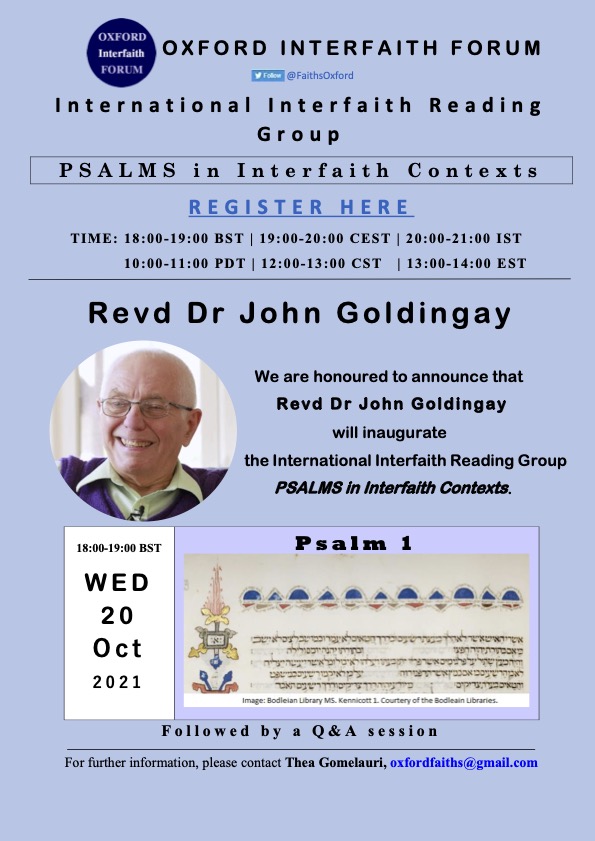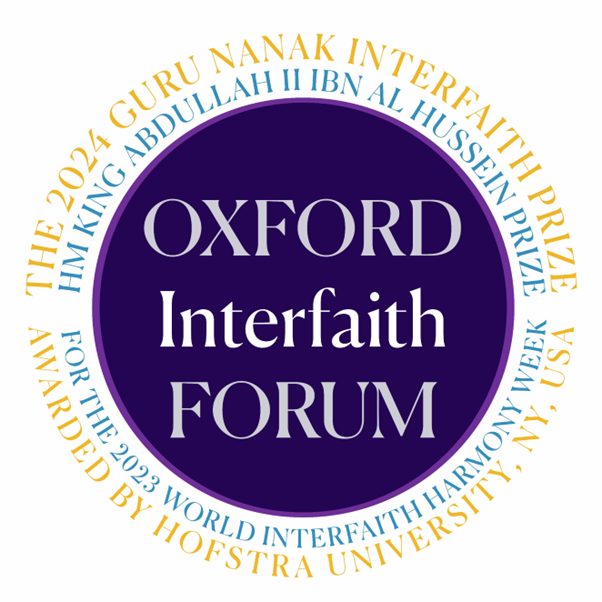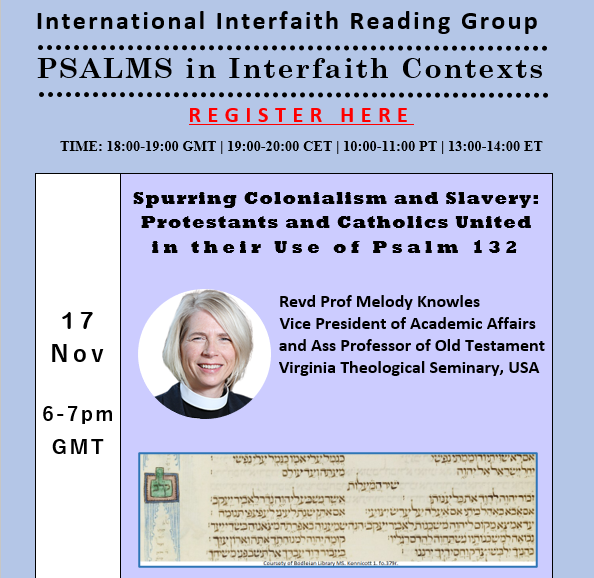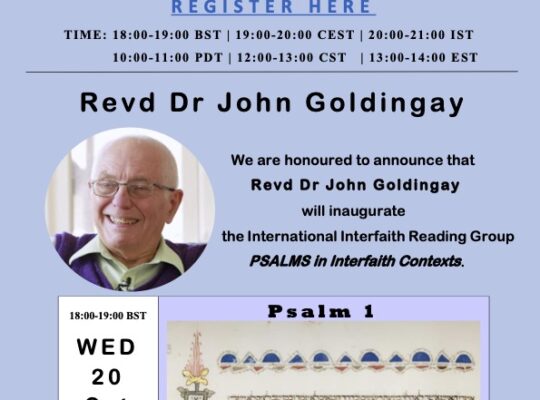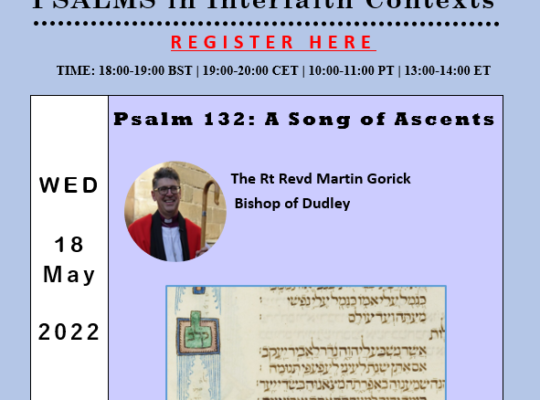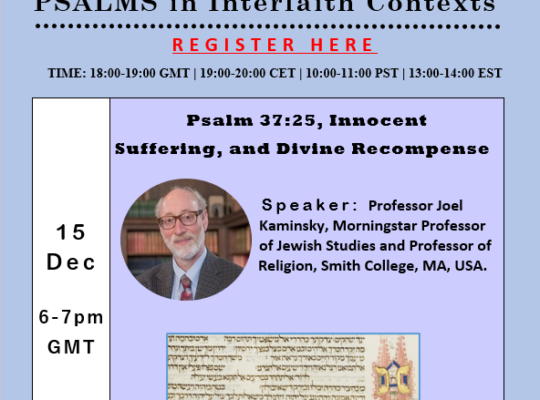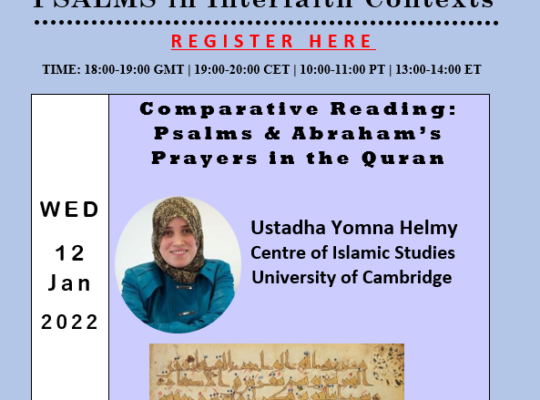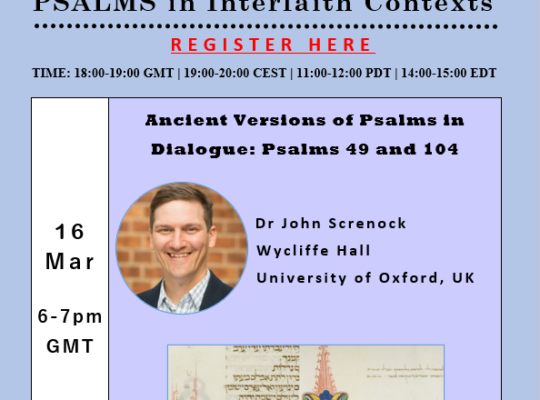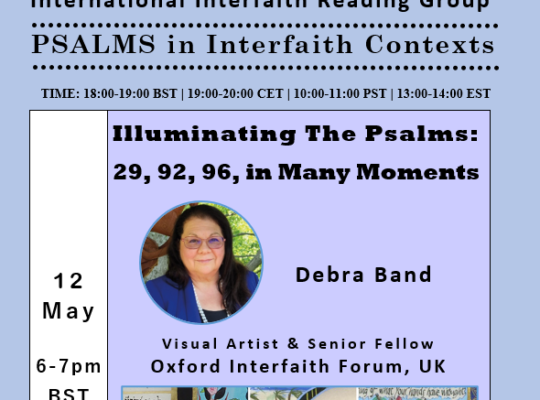17 November, 2022
We are delighted to welcome Reverend Professor Melody Knowles, Vice President of Academic Affairs and Associate Professor of Old Testament, Virginia Theological Seminary, USA, to lead a session of the Psalms in Interfaith Contexts Reading Group.
Here are the details of this fascinating session.
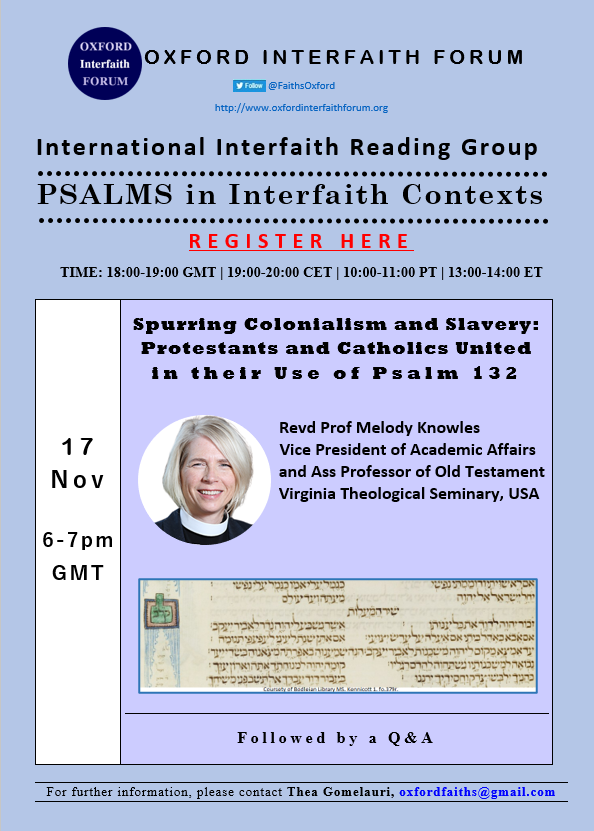
Topic: Spurring Colonialism and Slavery: Protestants and Catholics United in their Use of Psalm 132

Abstract: When we think about Catholic and Protestant interpretation of Scripture during the contentious period of the 16th-17thcenturies, we have come to expect difference and conflict. Yet the reception of Psalm 132 manifests a unified interpretive stance that promotes a unified aim: colonialism and enslavement. This presentation explores the ways in which European religious and political rivals took Psalm 132 as a goad and guide to conquer new lands and peoples.
Speaker: Reverend Professor Melody Knowles currently serves as Vice President of Academic Affairs and Associate Professor of Old Testament, Virginia Theological Seminary in Alexandria, Virginia, USA. She teaches courses on Psalms, the religion of Israel, Hebrew, and the Bible in film. Her published works include Centrality Practiced: Jerusalem in the Religious Practice of Yehud and the Diaspora in the Persian Period (SBL Press, 2006), and Contesting Texts: Jews and Christians in Conversation About the Bible (co-editor; Fortress Press, 2007). She was also the lead translator of the books of Ezra and Nehemiah for the Common English Bible and wrote the notes for 1-2 Chronicles in the study edition and the Psalms in the women’s study bible edition of the CEB. She has been the past chair of the SBL sections dedicated to The Book of Psalms, and Chronicles-Ezra-Nehemiah. She is currently writing a commentary on Psalms 107-150 for the Illuminations Commentary Series (Eerdmans), and a monograph on the reception of Ps 132 in communities ranging from the second temple period to antebellum America.
Chair: Revd Dr Eric Sarwar, Fellow of the Oxford Interfaith Forum
Date: 17 November, 2022
Time: 18:00-19:00 GMT I 20:00-21:00 Israel Time | 10:00-11:00 PST | 13:00-14:00 EST
Venue: Online
After registering, you will receive email from ZOOM containing information about joining the meeting. Please check your spam folder if you do not see a Zoom email in your inbox.
Related Sessions
- Illuminating The Psalms: 29, 92, and 96, in Many Moments
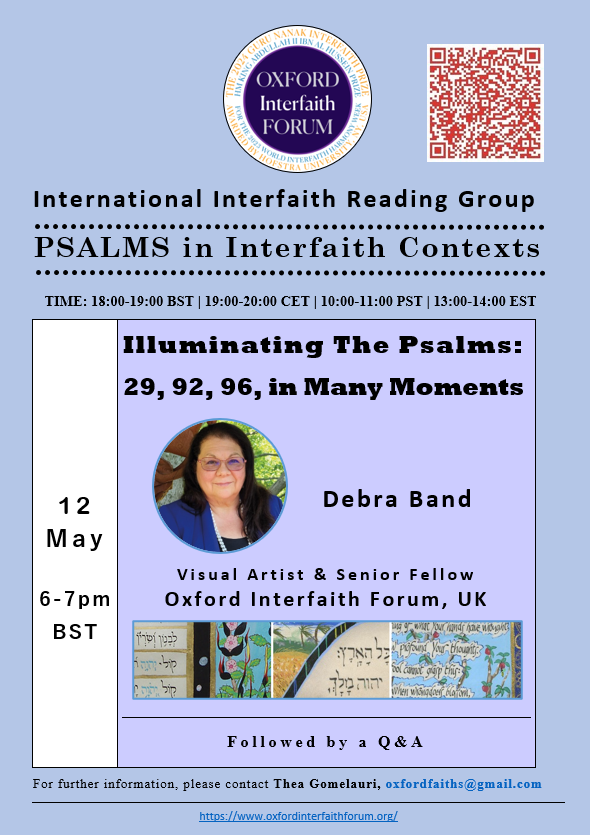
- Psalm 136: Hesed as Praxis
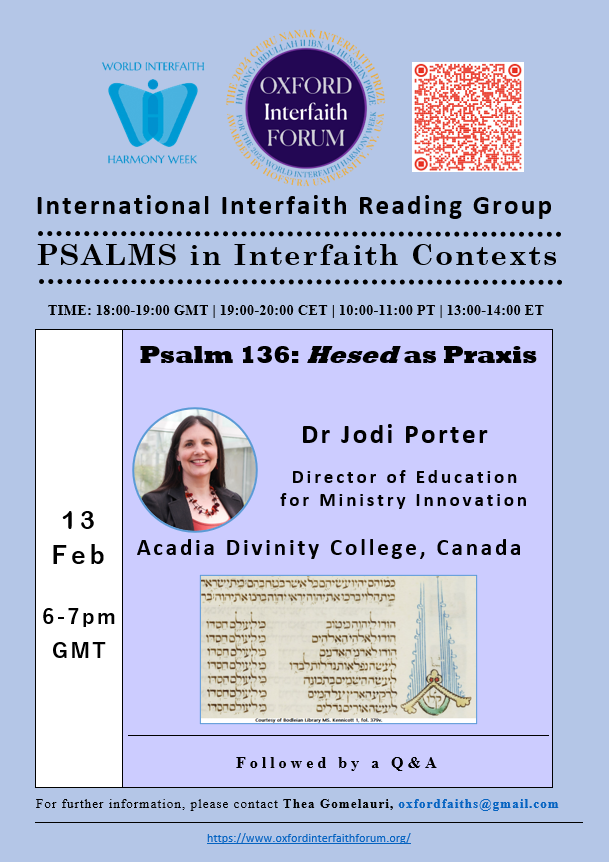
- Was Genesis 1 Dependent on Psalm 104?
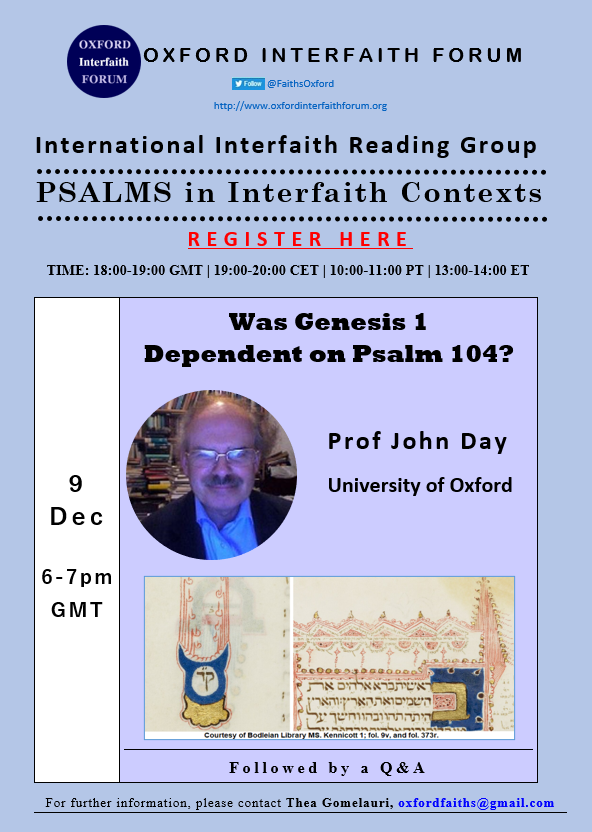
- The Seven Penitential Psalms in the Allegorist’s Hands
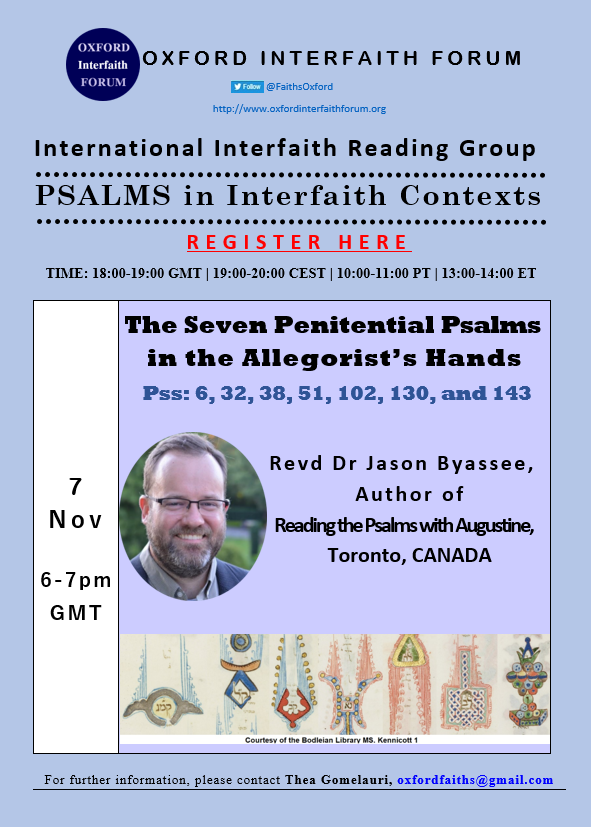
- Beyond Exegesis: The Psalm Cultures of Ancient Jews and Early Christians
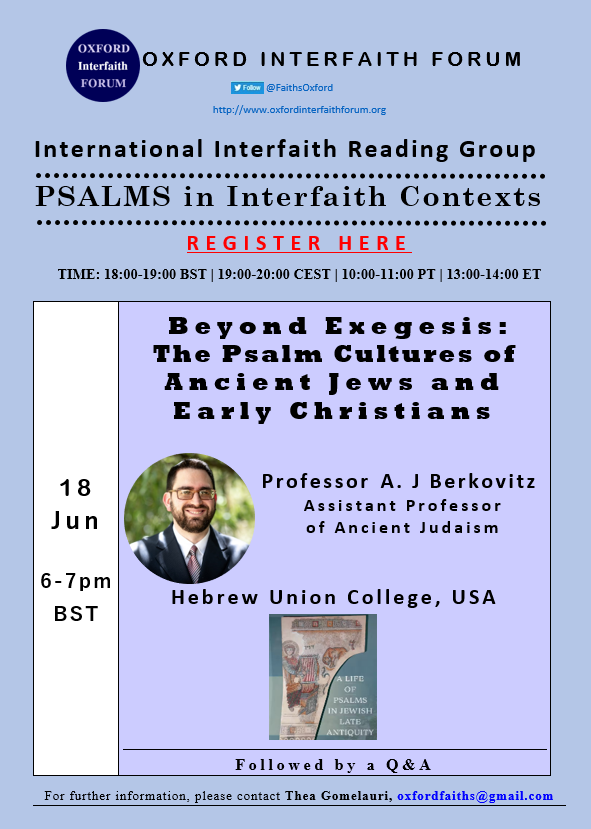
- Psalm 40 and Messiness of Prayer
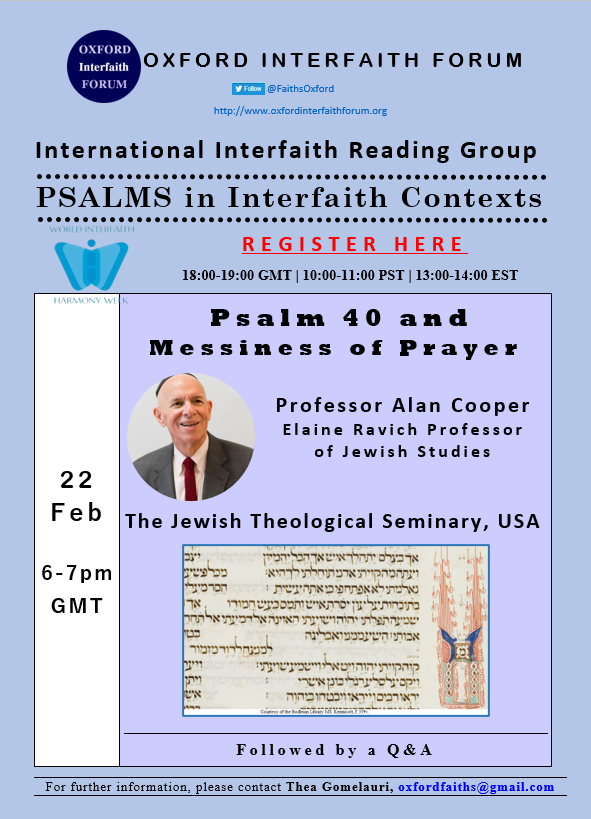
- Psalm 109: The Prayer No One Wants
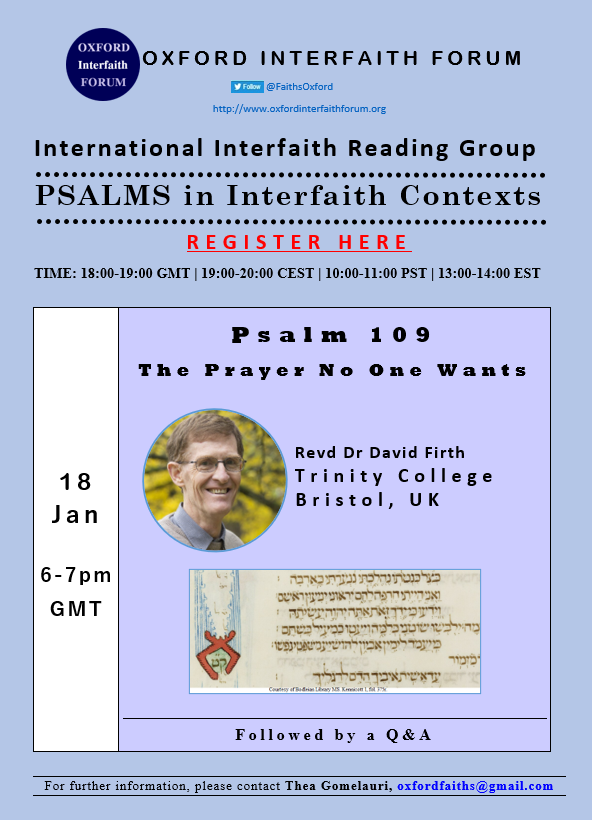
- Psalmody as an Alternative to Theodicy
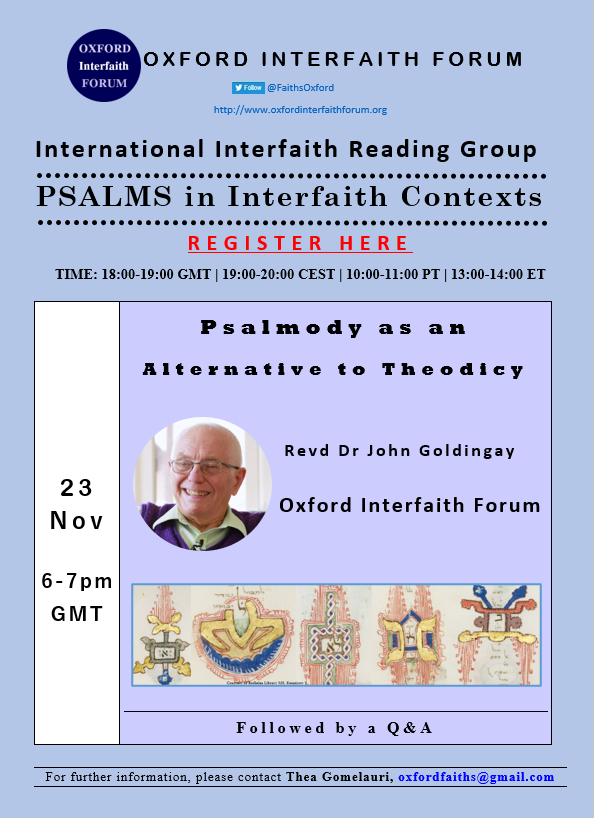
- Psalm 44 and the Book of Job: God on Trial
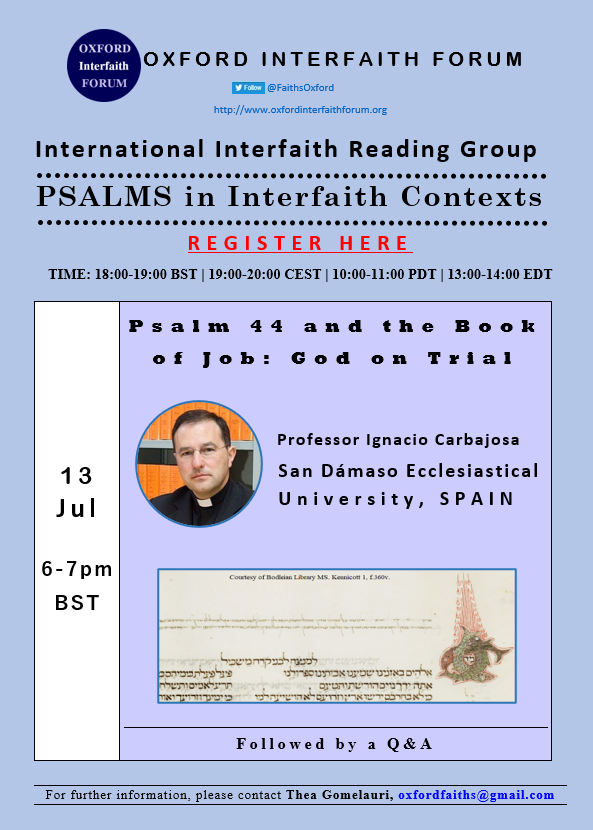
- Exile and Restoration in the Psalms
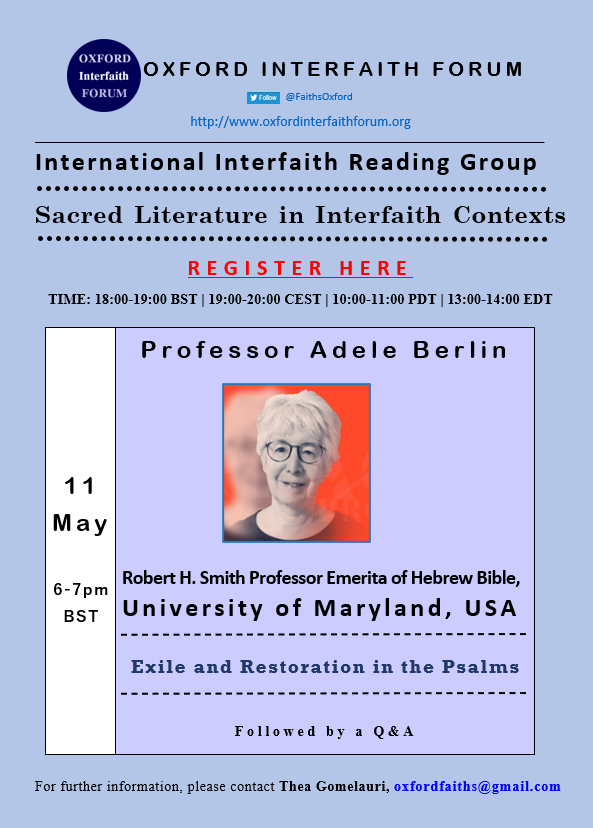
- ‘Deep cries unto deep’: Julian of Norwich and Psalm 42
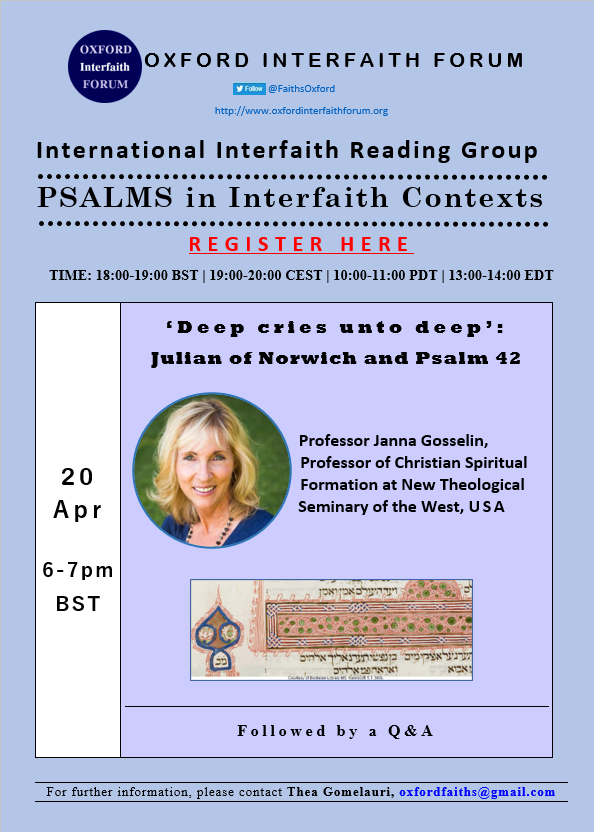
- Ancient Versions of Psalms in Dialogue: Psalms 49 and 104
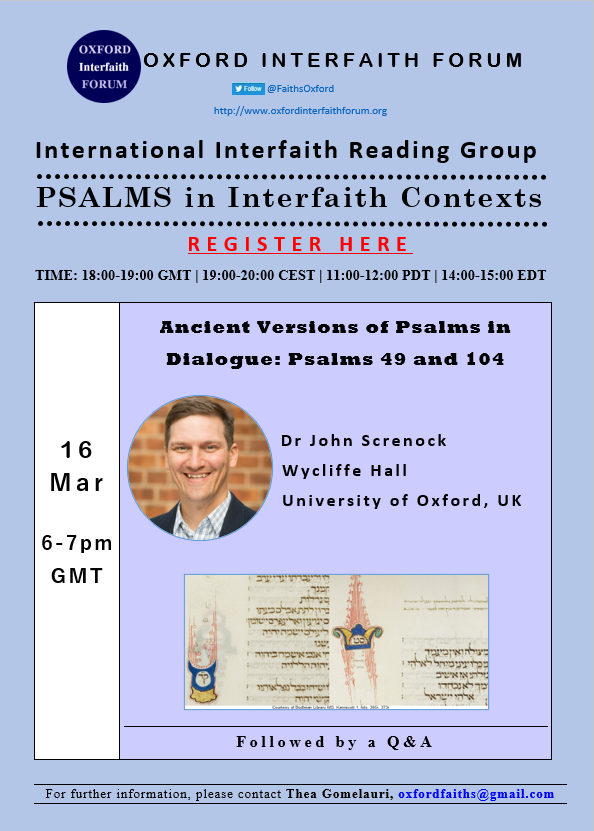
- Awake, My Soul! Psalms: 44; 57; 133; 143
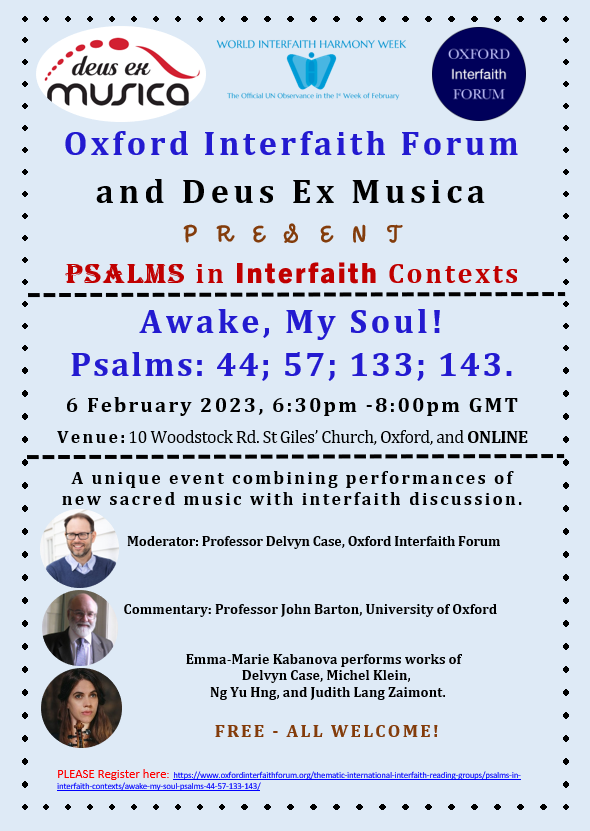
- Psalm 106: Fall of Jerusalem and Lamentations Ch. 3
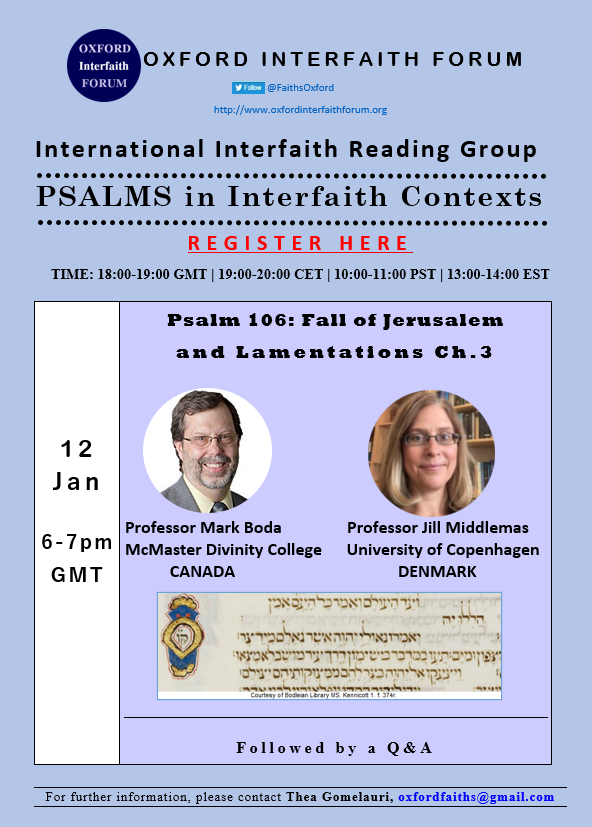
- Psalm 37:25, Innocent Suffering, and Divine Recompense
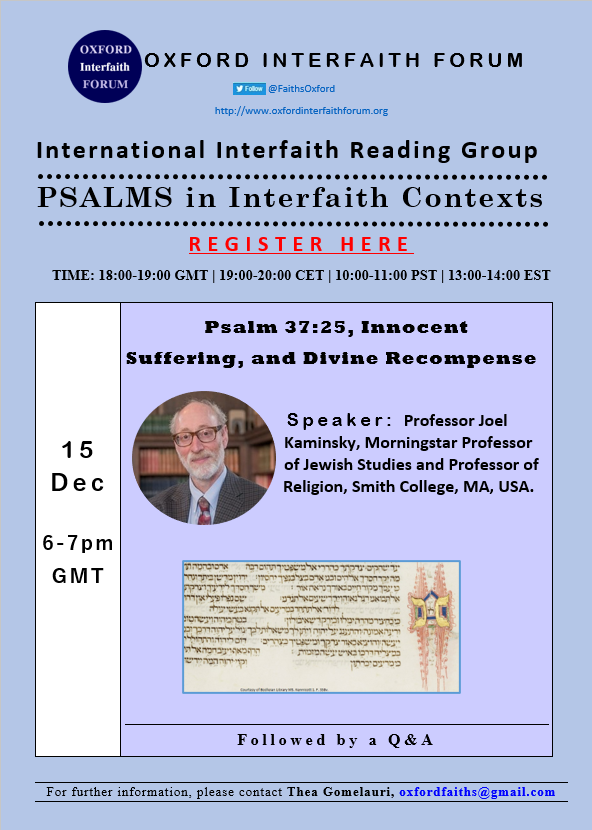
- Spurring Colonialism and Slavery: Protestants and Catholics United in their Use of Psalm 132

- Midrash Tehillim on Psalm 24
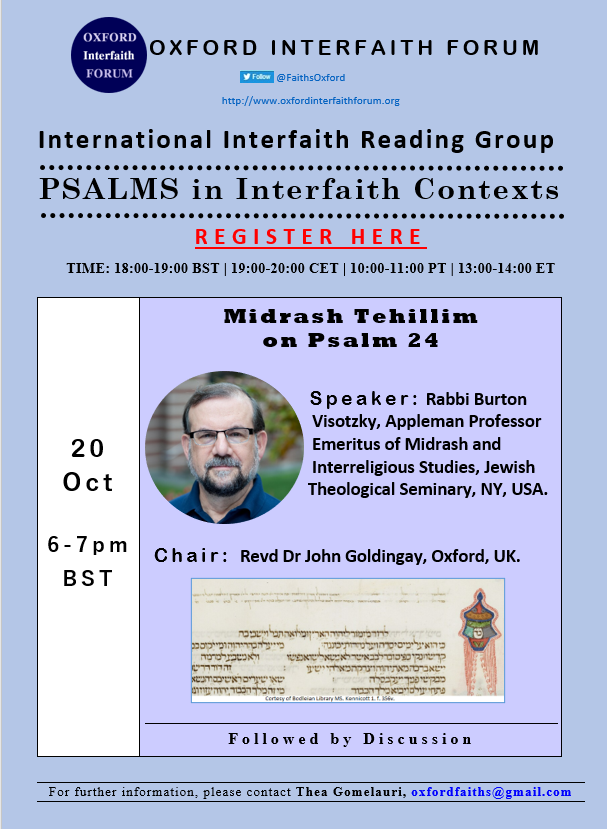
- Psalm 19: Muslim Reflections on Creation
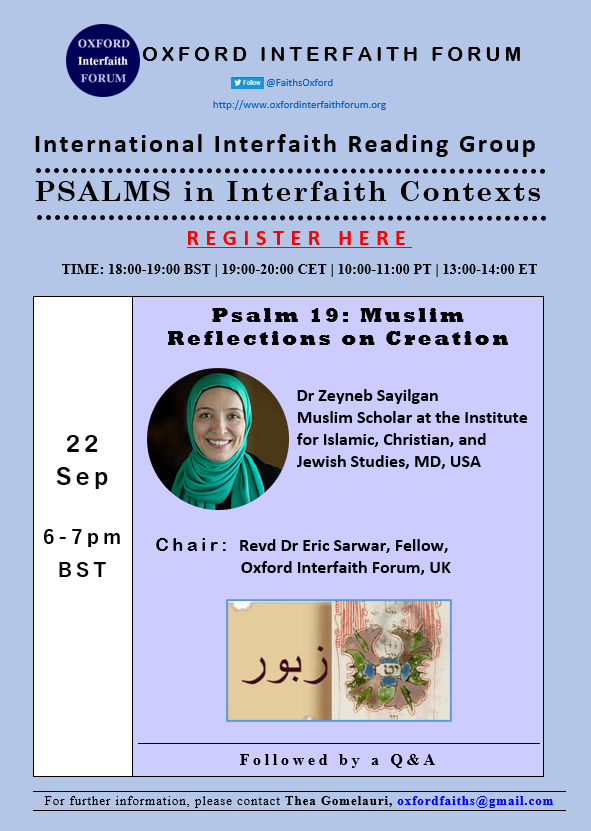
- Psalm 46: Singing in Hope and Defiance
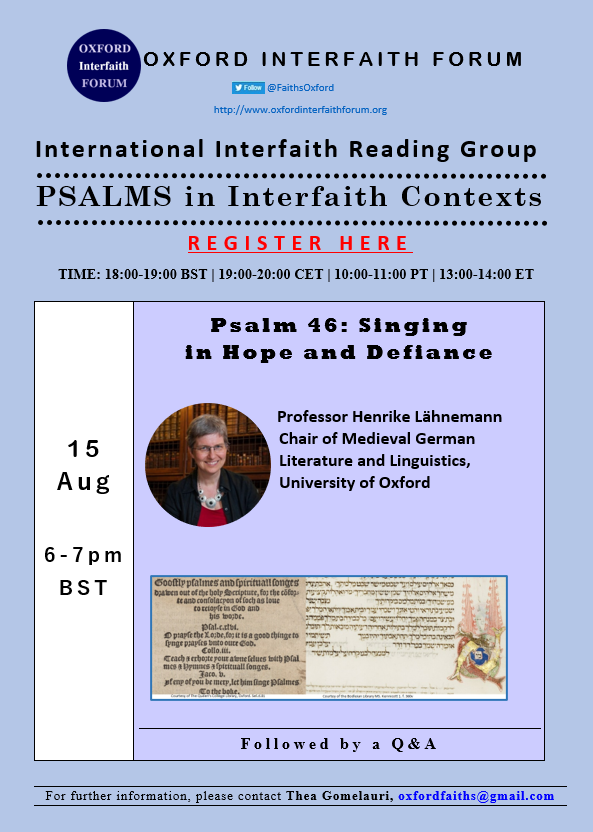
- When Music Meets Psalms: Psalm 130
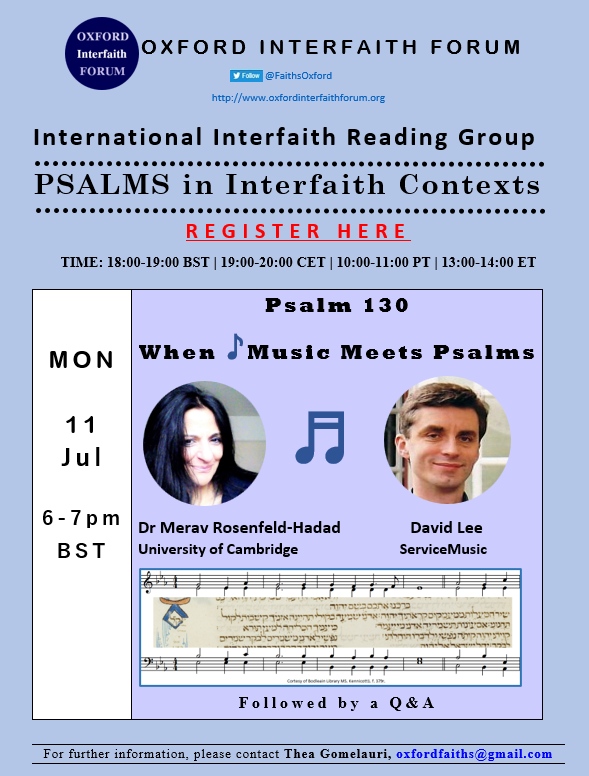
- Psalm 131: How I Weaned Myself from the Breast of God
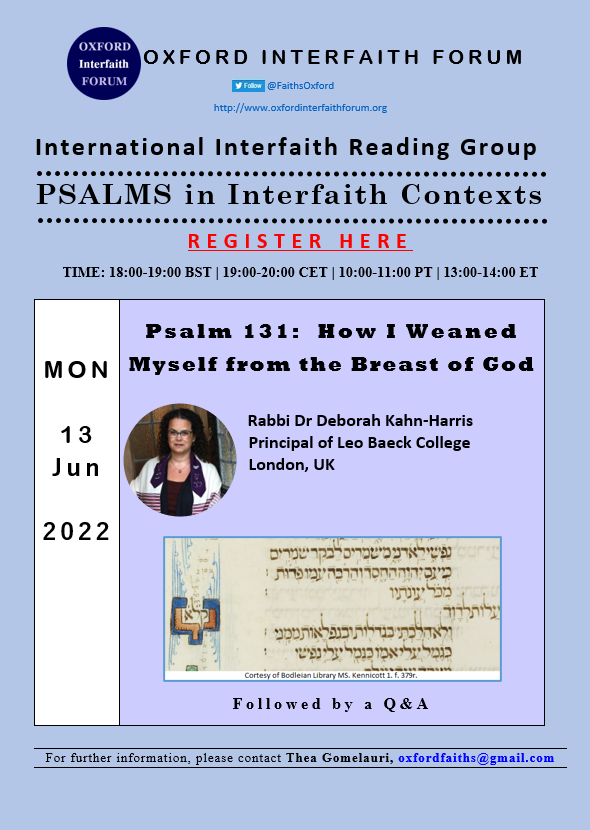
- Psalm 132: A Song of Ascents
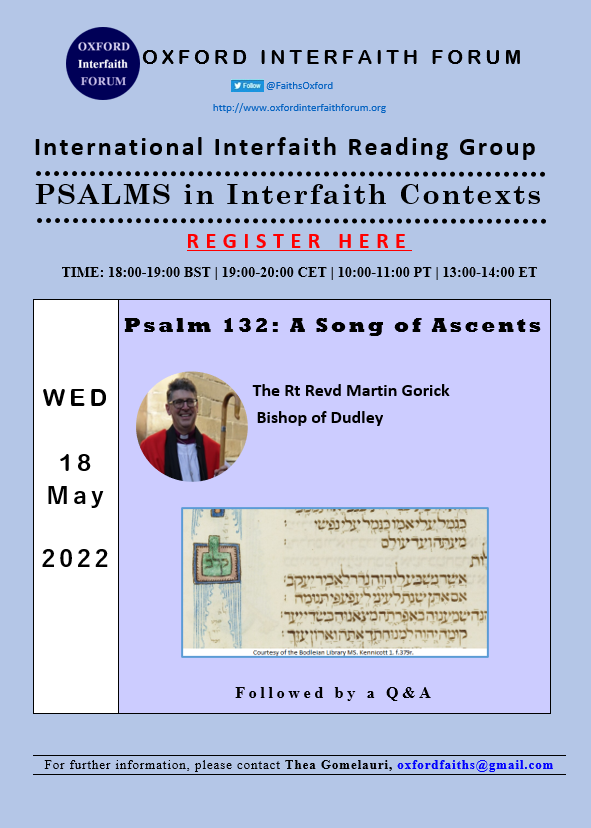
- Psalm 88: ‘Fists Flailing at the Gates of Heaven’
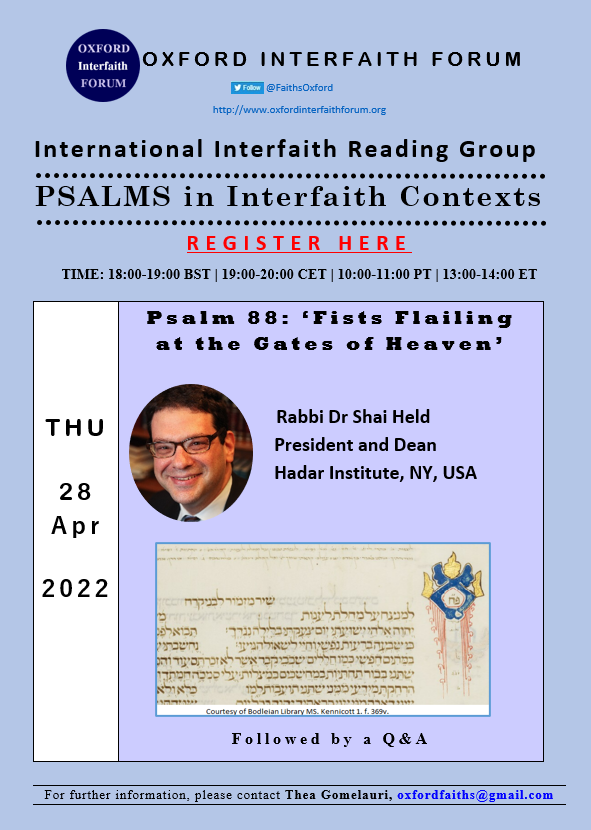
- Psalm 82: Demanding Justice
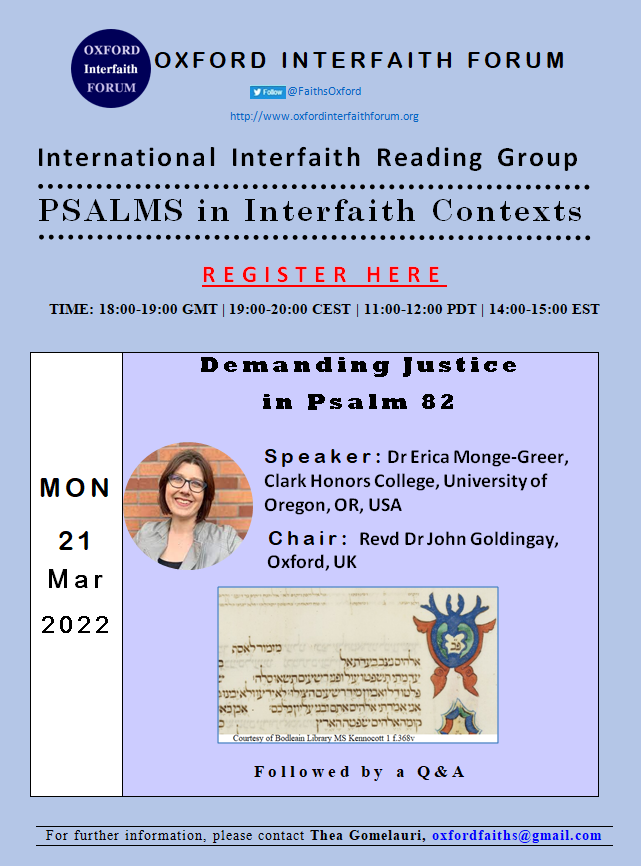
- Psalm 51: Contemporary Multifaith Interpretations
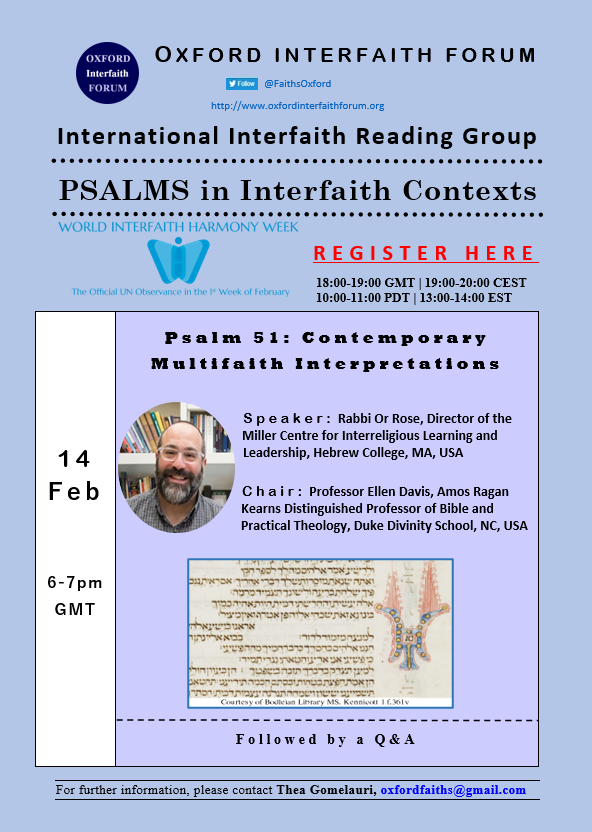
- Comparative Reading of Psalms and Abrahams’ Prayers in the Quran
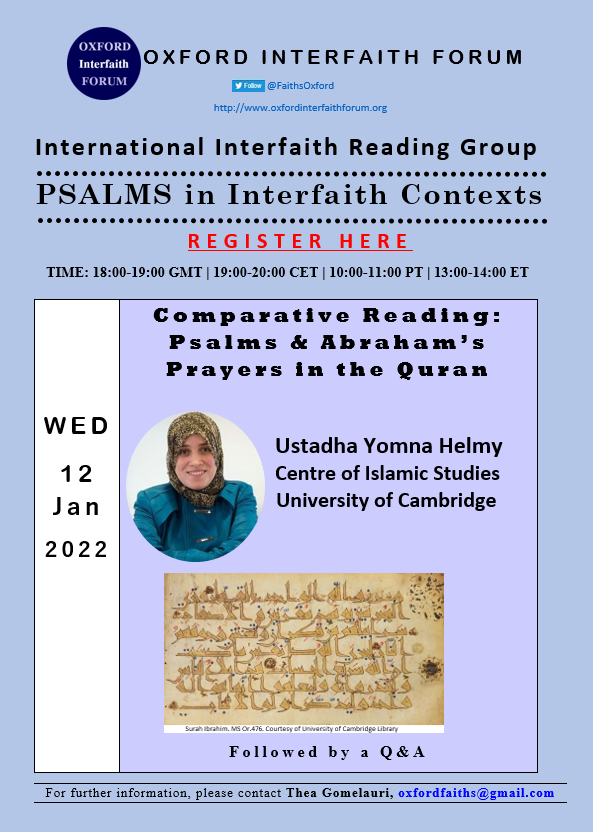
- Psalm 33: Mystical Reading
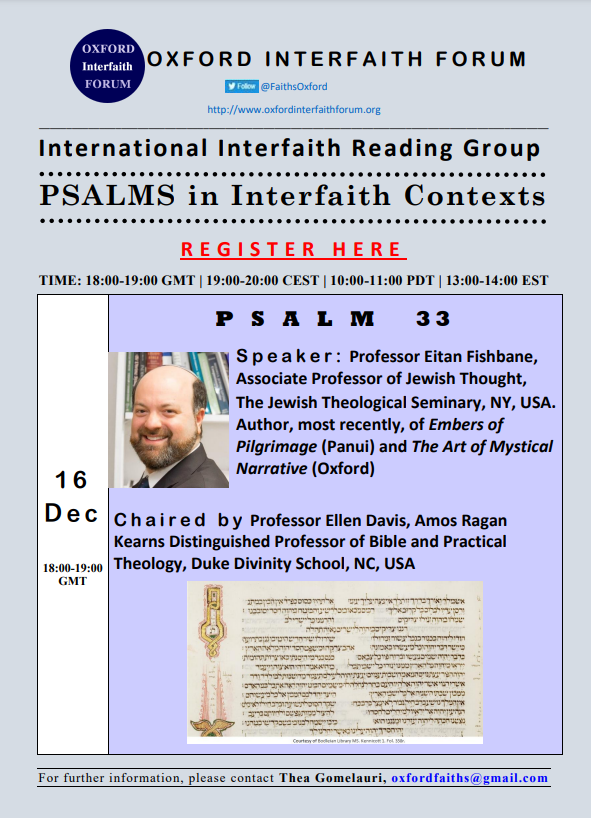
- Psalm 139
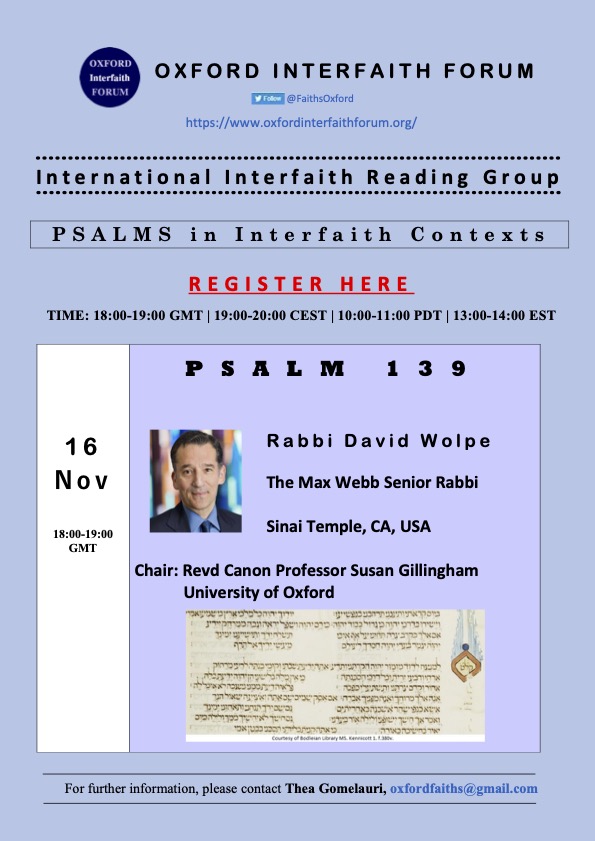
- Psalm 1: Inaugural Session by Revd Dr John Goldingay
